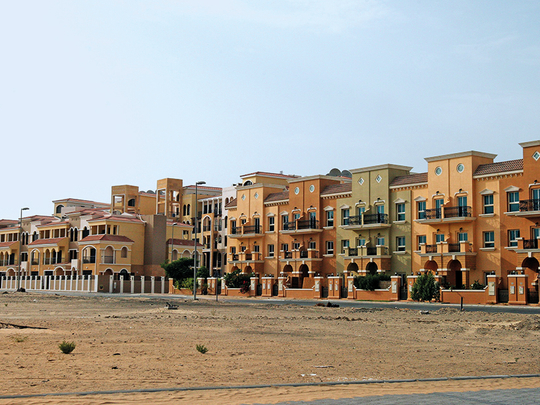
DUBAI: Even if developers fail to meet their project handover schedules in the next three years, chances of Dubai’s home prices starting to record sharp gains are marginal. On the contrary, both sales and rentals could remain under considerable pressure.
In an ideal world, Dubai would see another 140,000-plus homes being completed over the next 24 to 36 months. But given how developers have fared on keeping their promises, that tally seems remote. As per available indications, developers could have handed over about 15,000 units in 2017, far removed from the 25,000-30,000 predicted at the start of last year.
And even “if the project realisation rate by the developers increases [50 per cent in three years] that may prevent prices to move upwards and also pressure rentals,” said Ozan Demir, Director of Operations and Research at the consultancy Reidin.
While tenants will welcome any further declines in rents — and they did drop across the city in 2017 — developers with upcoming launches may have to confront a quite difficult selling environment. They will be launching at a time when the market has already seen quite a few of them. In fact, last year was one of the most active for offplan releases in the last five years.
But if they decide to hold back selling to a later date, chances are that others could come in and pick up whatever buyers are out there. Also, in a VAT regime, developers will need to keep one eye on the clock — all sales of residential units after three years of a project’s completion will be liable for the tax.
As for potential buyers, they should keep a few pointers in mind. “Check the developer’s reputation and take location and completion dates into consideration while negotiating price,” said Alexander von Sayn-Wittgenstein, Luxury Sales Director at Luxhabitat, the estate agent. “As for sellers, the prices are expected to flatten further so don’t be in a hurry to sell your property just yet. Renting it would be a good option instead.”
Developers on their part should also be looking at cutting corners — literally.
Only by dropping the size of the individual units will they be able to keep prices at an “affordable” range. Some developers are already ahead of the game in adjusting to this reality.
“We have seen this trend already occurring by many developers in locations such as JVC [Jumeirah Village Circle], Dubai South and Dubailand,” said Mario Volpi, Chief Sales Officer at Kensington Properties. “Building smaller units will continue as this trend will guarantee the property’s affordability tag. Buyers or investors will now have to get used to smaller-sized property units when choosing the ‘affordable’ option.”
But there are market sources who worry that cutting down the size may put off end-users from buying. A typical four-member family might find it extremely difficult to squeeze into a sub-800-square-feet home. They may be willing to do so if it is rented, but putting up money of their own to buy would give them pause.
Clearly, Dubai’s developers will have some chopping — and adding up — to do in 2018 and beyond.
Developers had a sales bonanza in 2017
In the first nine months of 2017, freehold transactions were up more than 20 per cent over the same period last year. But compared with the market peaks of 2013-14, the 2017 volumes are still down by a fairly sizable 40 per cent.











